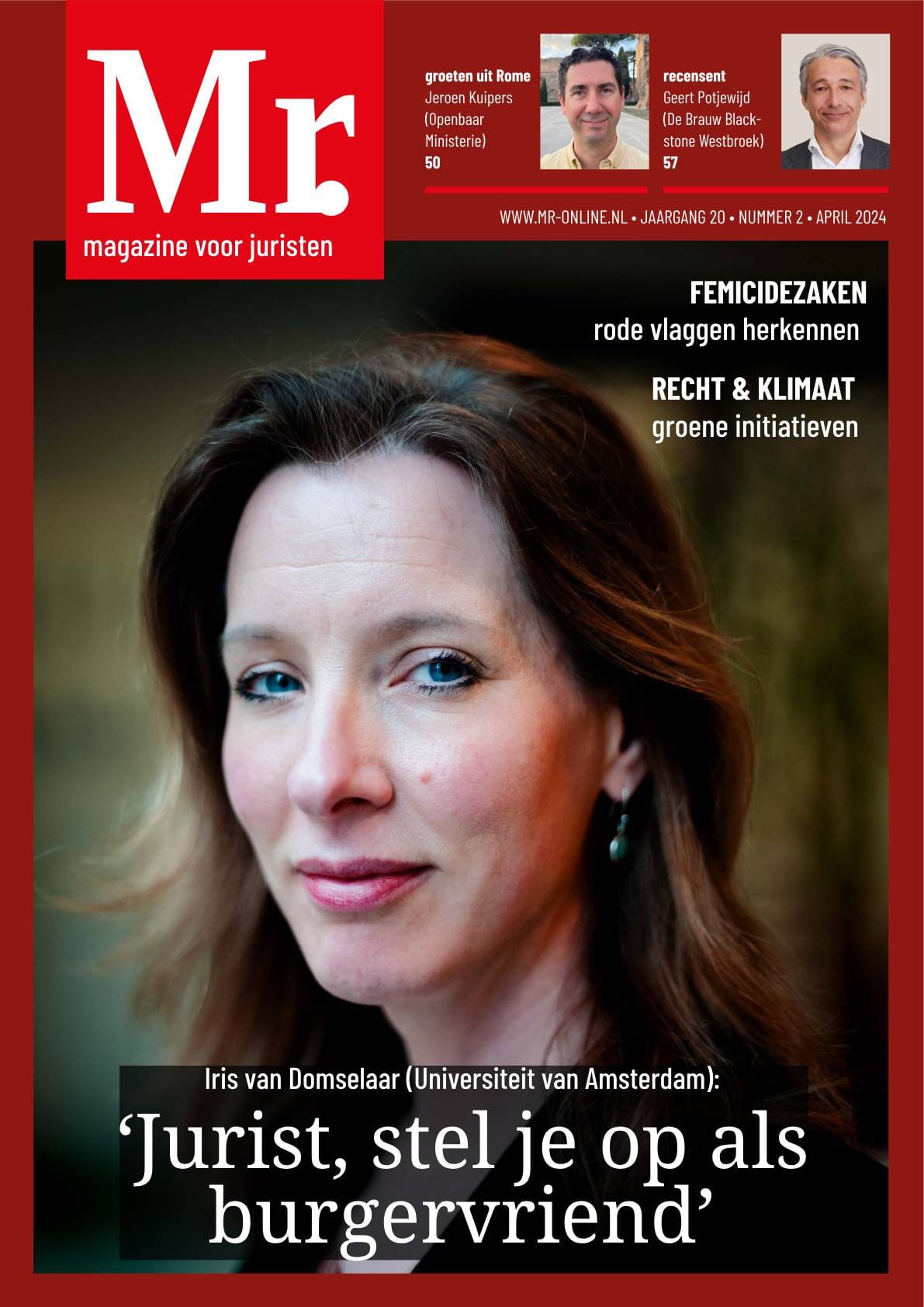Dear Friends of ‘Literatuur op vrijdag’!
Now the end of 2011 is very near it’s not only the time to express good intentions for 2012, but also to look back at 2011, especially . My goodness where has it gone! In the beginning of 2011 – full with energy – I was confident that I would be able to write consistently for ‘Literatuur op vrijdag’, but I failed. On March 11, 2011 – now a good nine months ago – the last instalment was published. Afterwards several attempts for further instalments failed. I decided that it was just a matter of time and was hopeful that the spirit would return, but alas. It must have been too much. The first instalment appeared on May 5, 2006, a very short note to the marvelous work ‘The Buddenbrooks’ by Thomas Mann. I have tried to collect all instalments published since the series started on my blog (www.literatuuropvrijdag.blogspot.com). You are of course invited to have a look at my scribblings. Although the blog is unfortunately not up to date it gives an idea about the effort writing requires. But you get a lot in return. For example the invaluable joy of reading good literature and trying to incorporate it in your own work from which one can derive positive energy. On the other hand keeping the series going can be very demanding and not easy to combine with other work. In view of this all it is not a surprise that my production halted already so early this year. Of course I regret that a lot, because I don’t want to stop this series, since there is still a lot to do and discover, which I hope to share with you. Maybe therefore trying to get the series back on track in 2012 might be one of my good intentions.
Some of my friends know that I published special Christmas instalments of ‘Literatuur op vrijdag’ in 2009 and 2010. Although I didn’t want to break that tradition this year, I discovered a story, which is more appropriate to present to you this time of the year, due to the slight involvement of a son who became a lawyer for gangsters and someone who feels like a lawyer who defends a case against his own convictions, but most of all because it covers a new year party. The story is ‘The New Year Party’ by Isaac Bashevis Singer, one of my favourite writers, taken from his collection of stories ‘Passion and Other Stories’ (1970), included in Singer, Collected Stories, A Friend of Kafka to Passions, published by The Library of America (2004).
Although you are never sure Singer himself appears in the story as the storyteller who is invited by one of his fans (Pearl Leipziger) to the New Year’s celebration in her apartment with a few Yiddish women writers, some lovers of Yiddish literature, all admirers of Singer’s work and Boris Lemkin (a real estate man who patronizes Yiddish writers and artists: ‘Authors sent him their books and he mailed them checks‘) and ‘Harry, his shadow‘. Singer accepts the invitation and of he goes on New Year’s Eve: ‘(.) a heavy snow fell. The streets were white, and toward evening the sky turned violet. New York reminded me of Warsaw. All that was lacking was the horse-drawn sleighs. Walking in the snow, I imagined that I heard their bells jingling. I bought a bottle of champagne and I managed to catch a taxi to the Bronx – no small accomplishment on New Year’s Eve. It was still early but already childrens were blowing their horns to usher in the New Year. The taxi drove through a Jewish neighbourhoud, and here and there I saw a Christmas tree strung with little lights and tinsel.‘
Singer is not unfamiliar with Maecenas Boris Lemkin and his shadow Harry: ‘Boris used to call him “my dictator”. Actually, Harry, or Herschel, was Boris’s butler and cook. Boris Lemkin was known as a gourmet and a ladies’ man. For years he had been separated from his wife. Someone told me that he owned a huge collection of pornographic photographs and films.‘
Arriving early at the party he is awaited by Pearl, looking splendid for the party that lies ahead. Stepping over the threshold Singer encounters exactly what is needed to have a good start of a New Year’s Party: ‘I smelled the aroma of my mother’s soup: the barley, the lentils, the dried mushrooms, the friend onions.‘ No sign of Boris however. ‘Late as always‘, according to Pearl. With sherry, anise cookies and a defense by Pearl of Singer (‘I am one of your true advocates. I don’t let anyone slander you in front of me.‘) the party waits for Boris.
Boris keeps them waiting for a long time and in the meantime Pearls tells Singer all of her secrets, amongst others her secret with Boris: ‘I come from a pious home. If anyone had told me that I wouldn’t marry according to the Law Of Moses and Israel I would have thought it a bad joke. But America shattered us. My father was compelled to work on the Sabbath and this was a terrible blow to him and my mother. Actually, it killed them. I began to attend leftist meetings where they preached atheism and free love. At one of them I met Boris. He swore to me that the minute he was divorced from his shrew we would stand under the wedding canopy. I swallowed everything. He’s such an ingenious liar it took me years to catch on to what he was. Even today he won’t admit that he has other women, and this makes me sick. Why does a man of seventy need so many affairs? He’s like those Romans with their vomitoriums, getting rid of one repast in order to partake of another. He’s crazy too. How crazy he is you will never know, but when it comes to making money he’s smarter than all of us. Four weeks before the Crash in 1929 he sold all his stocks and was left with a half-million dollars in cash. In those days, with that much cash you could have bought half of America. He doesn’t know himself how rich he is now. But just the same every penny he gives me he doles out. When he goes on a binge he’ll squander thousands, and suddenly he’s stingy about a nickel. There’s someone at the door – it’s him at last.’
Finally Boris arrives. ‘He didn’t speak – he bellowed. He sounded as if he were drunk. Boris Lemkin was short, as round as a barrel, with a red face, white hair, and white bushy eyebrows from under which a pair of beady eyes peered out. He wore a tuxedo, a pink ruffled shirt, and patent-leather shoes. A cigar was stukc between his thick lips. He extended a hand to me that had rings on three fingers, and shouted, “Shalom Aleichem! I read every word you write. Please don’t seduce my Pearl. She’s all I have. What would I be without her? Less than nothing. Pearl darling, give me something to drink; my throat is dry.‘ But Pearl doesn’t give in and guides Boris to the kitchen to have dinner, where Boris gulps down – slurping – two bowfuls of soup. “I had a clever mother (.) and she used to say, ‘Berele, take it all in while you can. You can’t eat in the grave.‘ Coming to speak about food Harry enters the scenario. According to Boris he is no good for anything else, but preparing karnatzlech, ‘that eunich‘ and he has an instinct ‘that God gives only to idiots‘: ‘When Harry tells me to buy a stock I don’t waste a second; I call my broker and tell him to buy. And when Harry says sell, I sell. He knows absolutely nothing about stocks – General Motors he calls General Mothers. How can you explain this?‘ Boris agrees with the answer Singer provides: ‘There’s no explanation for anything‘, but adds ‘There is a god, no doubt about it, but since He’s chosen to be silent for the last four thousand years and doesn’t want to say a word even to Rabbi Stephen Wise, then we owe Him nothing. We must do what is written in the Haggadah: ‘Eat, drink, and enjoy yourself.'”
After the writer friends have arrived, Harry is the last one who shows up, bringing a magnum of champagne for the party, as instructed by Boris, but not a duck, as instructed by Boris too. Harry couldn’t find a single duck. A reason for Boris to conclude: ‘Well, we’ll have to do without duck. I got up this morning with a craving for roast duck. For every duck that could be bought tonight in New York I would like to have a millions dollars tax-free.’ What would you do with so much money?, asks Singers: ‘I would buy up all the ducks in the whole of America.’
While Boris pours down one drink after one, laughing, clapping his hand, kissing Pearl and the other women, Singer has a short talk with the quite and sober Harry (‘with the seriousness of a valet looking after his master. I asked him how long he had known Boris and he said, ‘We went to cheder together.” “He looks twenty years older than you.” “In my family we don’t turn gray.”), the festivities get rudely disturbed by a phone call of one of Boris ‘protégé’s’. Pearl is not amused. Who is it? ‘Your great-grandmother has risen from the grave. Go pick up the exentension in the bedroom.‘ Singer in the meantime goes on a journey through the apartment. Suddenly Boris returns yelling: ‘I don’t need spies and I owe nothing to anyone (.) Go to hell, all of you. Parasites, schlemiels, leeches!‘ and starts complaining about the ‘harridans’ who surround him: ‘(.) As of this minute the comedy is over. I don’t need a bunch of old harridans who drain me dry and keep on demanding more. I never promised to be faithful to any of you or all the other garbage. Phooey! (.)‘. Pearl stirs up the fire by asking ‘The truth hurts, huh?‘ Boris replies in rage: ‘The truth is you’re as much a writer as I am a Turk! (.) I have to bribe the publisher to print it. And that goes for the lot of you. (.) I tried to read your poetry. Hertz-schmertz? Liebe-schmiebe! Eight-year-old schoolchildren can do better. Who needs your writing? The only thing it’s good for is to wrap herring in.‘ The next victim of Boris is Harry who tries to calm him and to whom he fulminates: ‘I’m drunk, huh? Everyone throws the truth in my face, but the one time I speak the truth you call me a drunk. I don’t need to wash my face and I don’t need Alka-Seltzer. I told you to bring me a duck, but your were too lazy to look for one. You’re like all of them – a schnorrer, a beggar, a bum. Listen to me! (.) If I don’t get a roast duck tonight, you’re fired and you can go to hell.‘ The quarrels continue until Boris gives in (‘Don’t leave me, pal, brother, heir. I’ve willed you everything – my whole fortune. All the others are enemies – my wife, my children, my girl friends. What do I want from life? A little friendship and a piece of a duck‘) and Harry takes him to bed, where Boris ‘snored once, and slept immediately.‘
In Boris’ Cadillac – Harry drives Singer home through the heavy snow that has fall – the silence between the man is broken by an understatement from Singer’ side: “Well, so we have a New Year.” Singer and Harry start talking about Harry’s specialty, the preparation of karnatzlech and Harry becomes talkative. Harry reveals his history with Boris and Boris’ wife (‘Where did you get an Xanthippe like this?‘ ‘Herschel (.) I was blind. Help me, because if you don’t she will drive me into my grave.’) Because Boris had developed stomach ulcers from Henrietta’s cooking, Harry had become his cook and afterwards his factotum. ‘We became like brothers‘. Boris two daughters and one son aren’t any good: ‘His older daughter has been divorced five times. The other is a vicous spinster. The son became a lawyer for gangsters. Before the thugs go out on a job, they come to him and he teaches them to outsmart the law.‘ Henrietta never gave Boris a divorce: ‘Today it’s easier to get rid of a bad wife. In those times every yenta in America was considered a lady and could send her husband up before the judge.‘ But when time elapsed and Boris got his divorce, Boris moved into an own apartment and enjoyed being taken in by gold digger women, but he falls for writers, painters, actresses and the like. And Harry effaces himself totally for Boris, who decided to live for one hundred years, ‘and when he makes up his mind about something it has to come true.’ Arriving at home Harry’s requests Singer to remain in the car for another minute: ‘A predawn stillness hovered over New York. The traffic lights changed, but not a single car passed by. Harry sat sunk in thought. He seemed to have grasped the riddle of his own being and was trying to solve it. Then he said to me and to himself: “Where can I get a duck in the middle of the night?“
Three year’s later Harry visits Singer. Boris hasn’t left him a penny. “He left nothing to anyone – not to Pearl or any of the others. All those years he talked about a will, but he never wrote one. A good half of his fortune was taken by Uncle Sam, and the rest by his wife, that bitch, and his children. The son, the shyster, came running the morning afther his father’s death and threw me out of the apartment. He even tried to grab some of my belongings. But it didn’t kill; I earn my bread.‘ Harry has become a waiter and in wintertime he moves to Miami Beach where he is a cook and his karnatzlech have become famous. The reason why Harry visits Singers is curious one. Boris still has no headstone and his son doesn’t keep his promise to order one. So Harry decided to order a headstone himself. ‘After all we were like brothers. Once a teacher came to our town and he said what has already happened even God cannot change.’
The question for which Harry consults Singer concerns the text he wants to engrave on the headstone: ‘Dear Boris, be healthy and happy wherever you are‘, which is refused by the engraver, who said that one cannot say ‘Be healthy‘ of a dead man. Singer first agrees, but Harry convinces him (‘But ‘healthy’ doesn’t mean just healthy. It used to be said, ‘In a healthy body there is a healthy soul.‘). Singer confirms that the Torah contains no law about what one can write on a headstone. ‘but if someone passes by and reads it, he may smile.‘ But Harry holds to his decision: ‘Let him smile. I don’t care. Boris didn’t care when people made fun of him‘ and according to this decision Singer makes a call with the engraver to tell him that Singer agrees with the text, feeling ‘like a lawyer who defends a case against his own convictions‘. The engraver gives in: ‘If this is your verdict, I will do as you say.‘
Walking back to his office Singer wonders how the illiterate Harry has reached such a spiritual height, one that is rare even among thnkers, philosophers and poets? ‘That New Year’s Eve when I had come home from Pearl Leipziger’s party at four o’clock in the morning, I felt that the hours I had spent there had been wated. Now, almost three years later, I learned a lesson I would never forget. When I told Harry that the inscription would read as he wanted it to, his face lit up. “Thank you, thank you. You did me a great favor.” “You are one of the noblest men I have ever met,” I said. “What have I done? We were friends.” “I didn’t know that such friendship existed.” Harry looked at me questioningly. He rose, extended his hand, and murmured, “Only God knows the whole truth”.’
Have a Happy New Year,
BANNING N.V.
Gino van Roeyen






